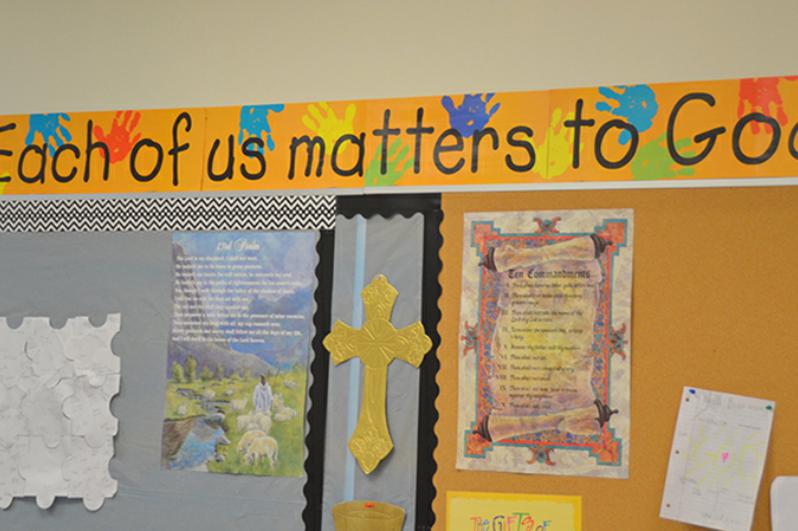'It stinks'
At a certain point in life, it is likely that we will find ourselves standing in a receiving line at a wake, our loved one's remains nearby as people come by to pay their respects. This is a profound opportunity for reflection about our loved one's life, our life and mortality, and what it all means. People will share words of condolence and of hope and faith in eternal life. However, the two most memorable words spoken to me at my father's wake over 30 years ago were, "It stinks."
My youngest brother was standing next to my mom; the rest of us lined up by age, placing me last in the receiving line. This position almost guarantees assumption of any blame for a slow-moving line. In between kicks, pokes and other subtle gestures to keep things moving along, my high school theology teacher made it to my spot in line, gave me a hug, looked at me, and said, "It stinks." Those were the most impactful words I heard during the wake and words that helped in the maturing of my faith.
It is interesting that it was not the assurances of my dad's place in heaven or the sure and certain hope that we will be reunited one day that most inspired me. No, it was the recognition that, regardless of my faith, my dad was gone, and it stunk. It was at this moment that I came to believe that faith must be grounded in the human condition. Jesus was human. He suffered, he doubted, he questioned. In fact, he even got angry, as with the money changers and the Pharisees. It became real to me that faith is not an academic exercise. It is not just concepts and ideas to memorize and parrot, but it is grounded in our human experience.
Although founded by Christ and divinely inspired, our Church is a human institution. There are many who are quick to make this point when it comes to the sins and failings of the Church. If one is to be intellectually honest, we must also see the extraordinary and even heroic things done by people in the Church, not the least of which are those who continue to promote literacy in the world and the attendant good that comes from these efforts. There has been no greater form of empowerment than education, and none have done more in this area than the Catholic Church.
Catholic education has been meeting students where they are at, recognizing where they are emotionally, intellectually, and spiritually and helping them become the person God is calling them to become. This requires women and men who believe that each child they encounter is made in the image and likeness of God and worthy of love and opportunity.
There is a risk, especially today, that faith and education can be reduced to simply following the rules or memorizing facts. For me, there has been no greater lesson in faith than in that moment I was freed to embrace my feelings and emotions and not cover them with platitudes and expectations. It is no coincidence that it was a high school teacher who helped bring this together for me. Everyday, Catholic school teachers encourage students to know and understand themselves and, in doing so, to really see God in their fellow students, in their families, and in the sacramental life.
Catholic education is more important to our society and Church than ever. Thanks to committed teachers, school leaders, and benefactors, students today will be fortunate enough to hear, "It stinks."
- Michael B. Reardon is executive director of the Catholic Schools Foundation, www.CSFBoston.org.


















